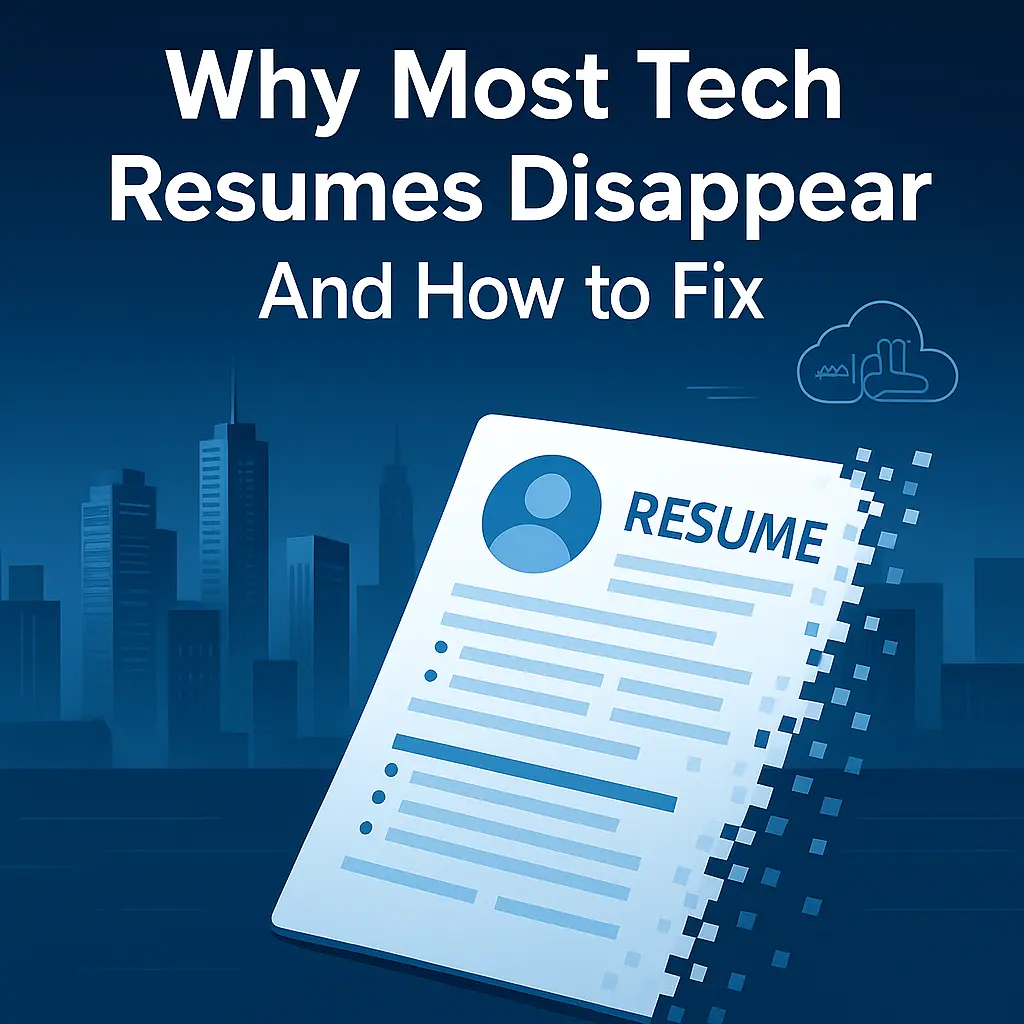Graduation day is supposed to be one of the happiest moments in your life. You’ve worked hard, celebrated with family and friends, and finally earned that diploma. It’s a milestone filled with hope and dreams about what comes next.
But then reality sets in, the job search.
Suddenly, the excitement fades and you find yourself staring at endless job listings, confusing application processes, and a pile of resumes sent into what feels like a black hole.
It’s frustrating, confusing, and often overwhelming.If you’re one of the many new graduates struggling to land jobs and wondering why your first job search feels so tough, you’re not alone.
The good news is that many of the challenges you’re facing can be solved with the right approach to your resume and job search strategy.
Why New Graduates Struggle to Land a Job
You might think your degree alone should open doors, but many new grads quickly realize that landing a job requires more than just good grades.
According to NBC News, as of March, the unemployment rate for recent college graduates rose to 5.8%, an increase from 4.6% the previous year.
There’s a lot of competition, unclear expectations, and a lot of confusion about how to present yourself to employers.
The truth is, most new graduates struggle to land jobs within the first year after graduation and there are some very common reasons why. Knowing what these hurdles are can help you get past them and get closer to that first real job.
Let’s be real for a second, most schools don’t teach you how to write a resume that actually gets you hired.
You were probably told to list your GPA, classes, and that one internship, but here’s the thing: employers don’t care about a long list of coursework. They care about what you can do for them.
And here are 5 reasons why you’re not landing your first job yet:
1. Your Resume Doesn’t Speak the Language of Employers
One of the biggest reasons new graduates struggle is that their resumes don’t speak what the language hiring managers are looking for. Many grads simply list their classes, GPA, and maybe an internship or two.
Again, these details alone aren’t enough to make an impact.
Employers want to see relevant skills, accomplishments, and keywords that match the job description.
The key is to focus on transferable skills gained from school projects, volunteer work, or part-time jobs. Use active verbs and try to include measurable outcomes, even if they seem small.
For example, instead of saying “worked on a team project,” say “collaborated with four team members to complete a project that improved process efficiency by 10 percent.”
Here’s the trick: A smart resume builder like Jobsolv’s can help guide you in structuring your bullet points and identifying the industry keywords that matter most.
📌 Here’s a guide on how to create a resume that gets real job offers.
2. You’re Using a Generic Resume for Every Job
Another common mistake is sending out the same resume for every job application. Job seekers, especially new grads, often think that one resume fits all roles.
In reality, tailoring your resume to each job is essential, especially when you’re competing with more experienced candidates.
If you’re blasting out the same version to 20 companies, chances are it’s getting ignored 100%.
Tailoring doesn’t mean rewriting everything from scratch. It means pulling the exact keywords from the job listing, reworking your summary to match what they’re looking for, and emphasizing the parts of your background that actually fit the role.
So, it needs to fit the bill.
Take note, this is an entry-level role, and you need to crack the code on how to land interviews which would basically shape your professional career. No shortcuts, just the smart-cut.
📌 Want to jump and start customizing your resume? Use this Free resume builder.
3. You’re Underselling Your Experience
How to highlight your experience when you think you have none?
Many new graduates underestimate the value of their experiences and don’t include enough on their resumes. You might be sitting on experience you don’t even realize counts.
Even if you don’t have traditional work experience, you likely have valuable skills and accomplishments worth highlighting. Leadership roles in student organizations, research projects, freelance work, or volunteering all demonstrate initiative and collaboration skills that employers appreciate.
What matters is how you talk about it. Saying member of student council is fine but saying led a fundraiser that brought in 10,000 dollars for local charities shows initiative.
And when you describe these experiences, focus on the impact you made rather than just listing duties. So if you think those extracurricular doesn’t add value? It may be because you’re underselling your experiences.
How do you address that in your resume?
When you use Jobsolv’s resume builder, you can frame these experiences with employer-friendly language and provides guidance that highlight your strengths in the best possible way.
Not yet sure how to frame your skills section?
📌 Here’s a guide on what skills should you add on your resume.
4. Your Resume Formatting Is Outdated or Cluttered
Even if you have great content, a poorly formatted resume can sabotage your chances.
Hiring managers often skim resumes quickly, matter of fact, in just 5-7 seconds fast. So you need a clean, professional layout that makes key information easy to find. Avoid cluttered designs, fancy fonts, and graphics that can confuse applicant tracking systems (ATS).
If you’re new to the job market, you might not know what these scanners actually do. So let’s break it down real quick.
What’s an ATS and why should I format my resume for it?
An ATS or Applicant Tracking System is software employers use to filter resumes before a human ever sees them so if your resume isn’t formatted properly it might never make it past this first gate
Most employers use ATS software to screen resumes. Yes, they have a system that’s like a sieve.
Jobsolv’s resume builder offers modern, recruiter-approved resumes designed to pass through ATS filters and impress human reviewers. Simple formatting tips include using clear section headers, sticking to standard fonts like Arial or Calibri, and limiting your resume to one page unless you have significant relevant experience. Remember that less is more when it comes to resume design.
For someone just starting out, one page is the sweet spot.
Thinking of using a resume template for your first job? Think again.
📌 Here’s a guide Why You Should Stop Using Resume Templates
5. You’re Overwhelmed and Don’t Know Where to Start
Ok we get it,
Job hunting is overwhelming, especially when you’re just starting out. Searching for openings, customizing every resume, keeping track of applications, prepping for interviews, that’s a lot.
It’s easy to become overwhelmed and lose momentum. This is a major reason why many new grads give up too soon or send out generic applications that don’t get results.
But the real results? Frustration. Burnout from a long job search.
That’s why so many people get discouraged or fall back on easy tricks like using templates, auto applying, and mass applying. Nothings wrong with using technology, it’s basically the reason why they’re created in the first place.
So what’s wrong? I’m doing what I can just to land interviews, but nothing sticks.
You know what’s wrong?
Prioritizing quantity over quality.
Please understand this is a competition and you can’t be out there blindly shooting for nothing.
Customize your resume for every role. It may sound like a lot, but that’s the key to landing your first job.
A targeted approach always win, start from there.
Now, we created a tool that will assist you in doing that. So, reinforce our help and take advantage of these free resources. Stay organized and focused, setting daily application goals and using Jobsolv to speed up your resume writing can help maintain consistency and quality throughout your search.
📌To help you better understand, here’s a guide why recruiters flag auto apply and mass job applications.
Frequently Asked Questions About Resumes for New Graduates
Q: What should a new graduate put on a resume if they have no work experience?
Include relevant school projects, leadership roles, volunteer activities, and soft skills such as communication and problem-solving.
Q; How long should a new graduate’s resume be?
Ideally one page, unless you have extensive relevant experience that justifies a second page.
Q: What is the best resume format for recent graduates?
A clean, reverse-chronological format that highlights education and transferable skills is most effective.
Q: Should I include my GPA on my resume?
Only if it is above 3.5 or specifically requested by the employer.
Q: Is a cover letter necessary for entry-level jobs?
Yes, a well-written cover letter helps tell your school achievements and leadership experiences and explain why you’re a good fit for the role.
Q: Can internships be listed as work experience?
Absolutely. Treat internships like jobs by describing your responsibilities and accomplishments.
Q: How do I tailor my resume for different jobs?
Match your skills and experience to the keywords and requirements listed in the job description.
Q: Are resume builders helpful for new graduates?
Yes, they save time, ensure proper formatting, and guide you in highlighting the right skills.
Q: How can I keep track of my job applications?
Using a job tracker tool helps you organize where you’ve applied and monitor your progress.
Q: Where can I find entry-level jobs that match my skills?
Curated job boards like Jobsolv’s offer listings tailored to new graduates’ backgrounds and goals.
Final thoughts: Make Your Resume Work for You
Landing your first job is a challenge, but it’s not impossible.
If you’re a new graduate struggling to land a job, you’re not alone, and it’s not because you’re not capable. Most of the time, it comes down to how your resume represents you. If it’s too general, not tailored, or doesn’t clearly show your value, it can hold you back without you even realizing it.
It’s normal to feel stuck or unsure of where to start. The job search can feel like a full-time job on its own. That’s where tools like Jobsolv can help. Our resume builder won’t do everything for you, but we give you control and can make it easier to stay organized, build a stronger resume, and move forward with more clarity and confidence.
Most of the time that’s all you need to finally get your foot in the door.
📌Now, take that step and start building a resume that recruiters actually want.
.svg)


















